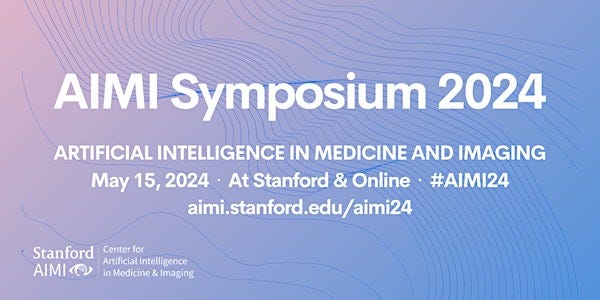⚡ From AI Stethoscopes to Smart Psychiatric Aids & More: This Week's Promising Med AI Advances Inside! 🚀
Updates on Artificial Intelligence & Emerging Technologies in Medicine 🤖🩺
“Medical education has to make sure that it trains good medical professionals who can secondarily deal with technology.” ― Bertalan Mesko, The Guide to the Future of Medicine (2022 Edition): Technology AND The Human Touch
Dear Med AI Enthusiast,
Welcome to The ‘Med AI’ Capsule weekly newsletter, your inside look at how artificial intelligence and emerging technologies are transforming medicine.⚕
Whether you're a medical professional 👩⚕️, a technology enthusiast 💻, or simply someone with a curious mind 🧠, The 'Med AI' Capsule is designed for you.
It helps you stay informed 📰 about the latest groundbreaking updates and offers insights into the rapidly evolving world 🌍 of artificial intelligence and emerging technologies in medicine.
Let the adventure begin! I'm thrilled to have you along for the ride. 🚀
In today’s capsule:
5 News Updates
4 Latest Research Papers
3 Industry Innovators
2 Upcoming Events
1 Knowledge Resource
Reading Time: 5-7 minutes
News Updates 📰
1. 🩺 AI-Enhanced Raspberry Pi Stethoscope Set to Advance Cardiac Diagnostics
A new AI-powered stethoscope, utilizing a Raspberry Pi aims to improve the precision of cardiovascular disease diagnostics.
Why Important: By incorporating AI and machine learning, this stethoscope achieves detailed analyses of heart rhythms, which could lead to earlier diagnosis of cardiovascular issues. It combines the power of a Raspberry Pi 2 W with the practicality of a portable and customizable device, suitable for a variety of medical environments.
Caution: As this technology progresses towards wider adoption, it is crucial to ensure it integrates well with existing medical workflows and adheres strictly to medical device standards to maintain both efficacy and patient safety.
2. 🧠 AI Model Predicts Mental Health Needs in Cancer Patients
Researchers from UBC and BC Cancer have created an AI model capable of predicting with over 70% accuracy whether cancer patients will need mental health services, analyzing oncologists’ notes for subtle cues needing early psychiatric or counseling interventions.
Why Important: This AI model represents a significant advancement in personalized cancer care, highlighting the intersection of oncology and mental health. By identifying patients' mental health needs early, it ensures timely and tailored support, potentially improving both treatment adherence and overall outcomes.
“These findings demonstrate the tremendous potential of AI to essentially act as a personal assistant to oncologists, enhancing patient care by helping identify mental health needs sooner and ensuring more patients receive the support they need.” - Dr. John-Jose Nunez, Psychiatrist
Caution: As the implementation of this AI tool in clinical settings progresses, it is crucial to ensure that its integration respects patient privacy and complements existing medical practices without replacing the critical human elements of healthcare.
3. 🧬 AI Model Emulates Clinical Trials, Predicts Stroke Treatment Outcomes
Scientists at The Ohio State University have developed a novel AI model that mimics randomized clinical trials, using vast amounts of de-identified patient data to accurately predict the best stroke prevention treatments for heart disease patients.
Why Important: By pre-training on extensive general data and then fine-tuning with specific health condition details, this AI model, known as CURE (CaUsal tReatment Effect estimation), successfully matches the treatment recommendations of actual clinical trials. It outperformed seven existing models and demonstrated the potential to accelerate the initial phases of clinical trials, saving both time and resources.
“This model is better than a crystal ball: Based on big data and foundation model AI, we can have reasonable confidence to be able to say what treatment strategy is better.” - Ping Zhang, Senior Author
Caution: While promising, the integration of this AI into clinical practice should be cautious, ensuring it complements—not replaces—the nuanced decision-making of healthcare professionals.
4. 🤰 Innovative AI Tool by Indian Researchers Promises Enhanced Accuracy in Pregnancy Scans
Developed by researchers from IIT Madras and the Translational Health Science and Technology Institute, Garbhini-GA2 is an innovative AI tool designed to integrate with ultrasound machines, offering accurate readings of gestational ages and early detection of fetal abnormalities.
Why Important: Garbhini-GA2 is engineered to deliver precise diagnostic information even from second-trimester scans, typically a challenging period for such accuracy. By ensuring reliable gestational dating, this AI tool aids in better management of pregnancy care, potentially reducing risks associated with preterm and post-term births.
Caution: The deployment of this new tool, while a significant advancement, must be carefully managed across clinical settings to ensure it enhances and aligns with existing diagnostic processes, and its use adheres to ethical standards and legal regulations.
5. 🏥 St Bartholomew’s Hospital Implements AI to Handle Missed Appointments
St Bartholomew’s Hospital has introduced an innovative AI tool that analyzes thousands of outpatient letters and ensures timely follow-ups by checking actions against electronic health records.
Why Important: The AI initiative at St Bartholomew’s, a first for Barts Health NHS Trust, has proven effective in the congenital heart disease and uro-oncology departments by identifying 'high risk' cases requiring immediate attention, thus preventing care delays and enhancing patient safety, which has inspired its adoption across 10 more NHS trusts to reduce missed appointments.
“If used correctly, AI has the potential to ease workloads for our admin teams, reduce waits for patients and improve safety.” - Simon Cashin, information business partner at St Bartholomew’s
Caution: The broader implementation must be approached with careful consideration of privacy and data security. Additionally, initial findings suggest that certain ethnic groups might be disproportionately impacted by missed appointments, indicating potential barriers that need to be addressed to ensure equitable healthcare access.
Latest Research Papers 🔬
McGenity, C., Clarke, E.L., Jennings, C. et al. Artificial intelligence in digital pathology: a systematic review and meta-analysis of diagnostic test accuracy. npj Digit. Med. 7, 114 (2024). https://doi.org/10.1038/s41746-024-01106-8 - examines the diagnostic accuracy of AI in digital pathology across various diseases, revealing high sensitivity and specificity but noting widespread issues with study biases and reporting gaps.
Lin, CS., Liu, WT., Tsai, DJ. et al. AI-enabled electrocardiography alert intervention and all-cause mortality: a pragmatic randomized clinical trial. Nat Med (2024). https://doi.org/10.1038/s41591-024-02961-4 - demonstrates that AI-enabled ECG alerts significantly reduce all-cause mortality among hospitalized high-risk patients by improving early detection and timely clinical intervention.
Chen TH, Kuo CF, Lee C, Yeh TS, Lan J, Huang SC. Artificial Intelligence Model for a Distinction between Early-Stage Gastric Cancer Invasive Depth T1a and T1b. J Cancer. 2024 Apr 8;15(10):3085-3094. doi: 10.7150/jca.94772. PMID: 38706899; PMCID: PMC11064248. - demonstrates the effectiveness of an artificial intelligence model for distinguishing between the early-stage gastric cancer invasive depths of T1a and T1b using white-light images, achieving high accuracy rates and potentially eliminating the need for traditional endoscopic ultrasound and CT scanning methods in staging these conditions.
Farhat H, Makhlouf A, Gangaram P, El Aifa K, Howland I, Babay Ep Rekik F, Abid C, Khenissi MC, Castle N, Al-Shaikh L, Khadhraoui M, Gargouri I, Laughton J, Alinier G. Predictive modelling of transport decisions and resources optimisation in pre-hospital setting using machine learning techniques. PLoS One. 2024 May 3;19(5):e0301472. doi: 10.1371/journal.pone.0301472. PMID: 38701064; PMCID: PMC11068197. - harnesses machine learning to optimize pre-hospital transport decisions and resource allocation, revealing that models like XGBoost can accurately predict patient transport needs with high specificity, thus enhancing operational efficiency in emergency medical services.
Industry Innovators 👨🏭
OM1 - a pioneering healthcare technology company specializing in personalized medicine and real-world evidence (RWE) research. They leverage next-generation AI platforms and deep clinical data to enhance healthcare delivery and outcomes. OM1 has launched three innovative products, OM1 Orion, OM1 Lyra, and OM1 Polaris, all powered by their patented AI platform, PhenOM™. These tools utilize advanced AI and deep clinical data to enhance personalized medicine and clinical research.
Binah.ai - a technology company specializing in health and wellness monitoring solutions using advanced AI. Their unique software-based approach enables health data collection via cameras on common devices like smartphones and tablets, without the need for dedicated hardware. Binah.ai's technology supports a variety of industries by providing easy, quick, and cost-effective health monitoring. The company's mission is to enhance accessibility to health services globally, leveraging its innovative platform to bridge gaps in healthcare delivery.
Caresyntax - a leader in digital surgery and OR analytics, focusing on making surgery safer, smarter, and more profitable. They employ AI-powered software, devices, and clinical services to deliver predictive insights, helping to improve surgical outcomes and operational efficiencies. Caresyntax's vendor-agnostic platform harnesses data from surgical videos and healthcare databases to enhance care delivery. They also operate a Patient Safety Organization (PSO) to promote quality and safety in surgery through data sharing and analysis.
Upcoming Events 🧑💻
Knowledge Resource 📚
MedAI | Decoding AI in Healthcare - AI and Genomics Ep 18 | MedSynapse
In episode 18 of the MedSynapse series, "Decoding AI in Healthcare," experts discuss the transformative impact of artificial intelligence (AI) in the field of genomics. This episode delves into how AI enhances genomic diagnostics and the potential it holds for advancing personalized medicine.
AI's integration into genomics is pivotal for predictive healthcare, offering precise assessments that aid in disease prevention and treatment customization. Anu Acharya, CEO of Mapmygenome, highlights how AI-facilitated genomic services can predict disease susceptibility, enabling proactive health management. The discussion extends to pharmacogenomics, where AI helps determine individual responses to medications, thus optimizing treatment effectiveness and minimizing adverse effects.
The episode also tackles ethical issues and privacy concerns surrounding genomic data use. It emphasizes the importance of informed consent and the ethical responsibilities of handling such sensitive information. Furthermore, it discusses the gap between genomic research and clinical application, advocating for increased awareness and integration of genomic data in routine medical practice.
Looking to the future, the episode speculates on the growing role of AI in genomics, particularly in generating actionable insights from vast genomic datasets. This advancement could significantly enhance the precision of medical treatments tailored to individual genetic profiles.
Let’s wrap it up with a poll! 📊
Your feedback is crucial to me, as it helps me understand your interests and improve my offerings. I would appreciate it if you could take a few minutes to share your thoughts about what you've enjoyed and what you think I could do better - https://forms.gle/xpbpgVEyARWx6ZxN8
Stay tuned for our upcoming editions as we explore the latest breakthroughs and dive deep into the transformative power of artificial intelligence and emerging technologies, shaping a healthier future. 🚀
Warm regards,







